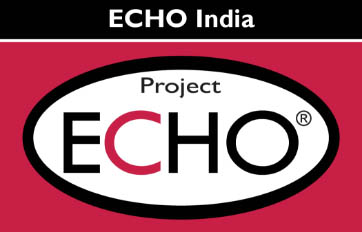The ECHO model addresses global challenges like poverty, inequality, climate change, environmental degradation, peace and justice.
The ECHO model has proven efficient, effective, and scalable across several disciplines in empowering global change, especially in the fields of health and education. Going beyond health and education, the ECHO model can be leveraged to create lasting change across multiple sectors and achieve Sustainable Development Goals (SDGs) - extending even to Gender Equity and Climate - by empowering stakeholders from relevant fields to think and expand their horizons to achieve a better and more sustainable future for all.
In terms of achieving gender equality, the ECHO model connects frontline health workers like nurses, ASHA, and Auxiliary Nurse Midwives (ANMs) – primarily women – to experts in urban institutions and binds them into a community of practice. ECHO programmes enable women to access quality healthcare services in remote and underserved areas by eliminating the need to travel long distances. The ECHO mentoring format decentralises power and expertise, ensuring every voice in the room is heard, irrespective of gender.
Through the ECHO Model, we aim to address global challenges like poverty, inequality, climate change, environmental degradation, peace and justice. ECHO is working to address some of the key thematic areas under Sustainable Development Goals.
- SDG 3: Good Health and Well-Being - teleECHO programmes create ongoing learning communities whereby primary care clinicians receive support and develop necessary skills through the teleconferencing model, with specialists providing the required mentorship to help them address challenges.
- SDG 4: Quality Education - Education is one of the key thematic areas for ECHO, which primarily aims to promote virtual learning models among children. When the COVID-19 pandemic hit, ECHO’s education programmes rapidly adjusted to help teachers and parents face the challenge of at-home learning and improved the quality of education.
- SDG 5: Gender Equality - The ECHO Model is helping women health practitioners, nurses, and educators strengthen their capabilities through knowledge-sharing and awareness building. Also, ECHO India’s programme impact evaluations reveal that more than two-thirds of healthcare professionals mentored through the ECHO Model are women.
- SDG 10: Reduced Inequalities - ECHO is enabling equitable access to healthcare and ensuring that far-flung communities can access quality care without needing to travel long distances. ECHO ensures this by expanding its reach to the hinterland through an array of public and private partnerships.
